Johnstown was home to more than 30,000 people in 1889 and many of them worked in the booming steel industry. On May 31, a spillway at the South Fork dam became clogged with debris due to steady heavy rain. At approximately 3 PM in the afternoon the dam gave way, millions of tons of water poured into the valley and the city. In just 40 minutes, 1600 homes turned into debris and thousands of people died and their corpses floated away.
The South Fork Dam was built to provide water for the operation of the Western Division of the Pennsylvania Mainline Canal between Johnstown and Pittsburgh. The canal system was obsolete by the time the dam was completed in 1853.
An engineer who saw the situation of dam, immediately rode a horse towards the village of South Fork to warn the residents. Unfortunately, the telegraph lines that would send the warning to Johnstown were down. The dam eventually gave way and the heavy water poured into the valley. The roaring water was filled with debris, boulders and whole trees. It first went through the narrow path of the little Conemaugh river and smashed into the small town of Mineral Point and swept away all traces of its existence. Next in line was Woodvale, a town of about 1,000, that the torrent smashed with equal ferocity. As the flood was going through towns towards the Johnstown, it was destroying trees, homes, boxcars and even locomotives and carrying them along with the water.
The flood struck the Johnstown with devastating force along with heavy wind and blew the buildings and homes. Next came the great wall of water sixty-three feet (19m) high that smashed into the city, “crushing houses like eggshells” and snapping trees like toothpicks. The flood met its first serious resistance at the Pennsylvania Railroad’s Stone Bridge, which saved the lives of thousands by not breaking. The debris of homes and trees that were piled up behind the bridge caught fire and burned through the night, blanketing the ravaged town in a dark cloud of acrid smoke.
The approximate death toll was over 2,209 and their bodies were found as far away as Cincinnati. One third of the dead were never identified and their remains were buried in in the “Plot of the Unknown” in Grandview Cemetery in Westmont. Debris at the stone bridge covered 30 acres, and clean-up operations were to continue for years. Four square miles of downtown Johnstown was completely destroyed.


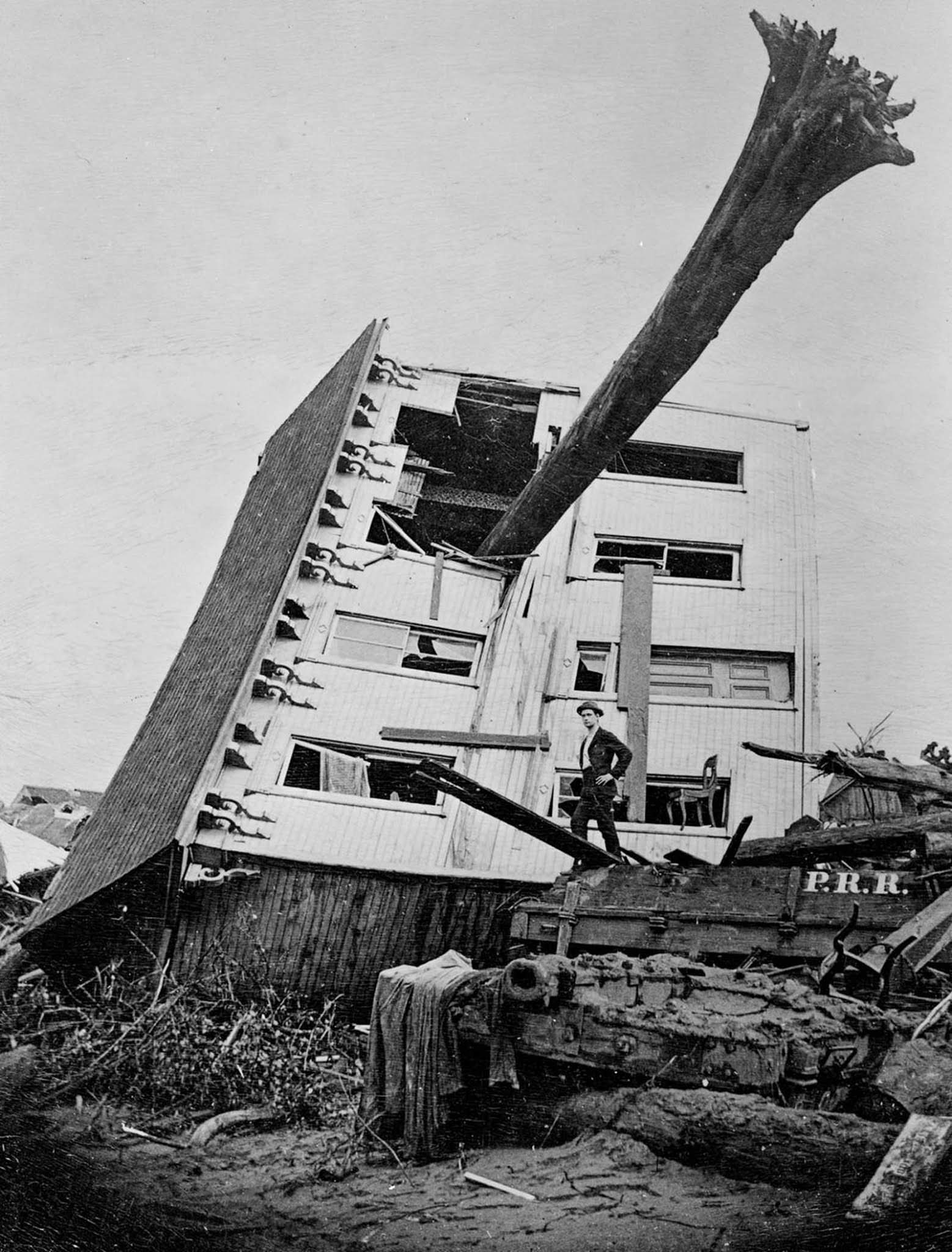
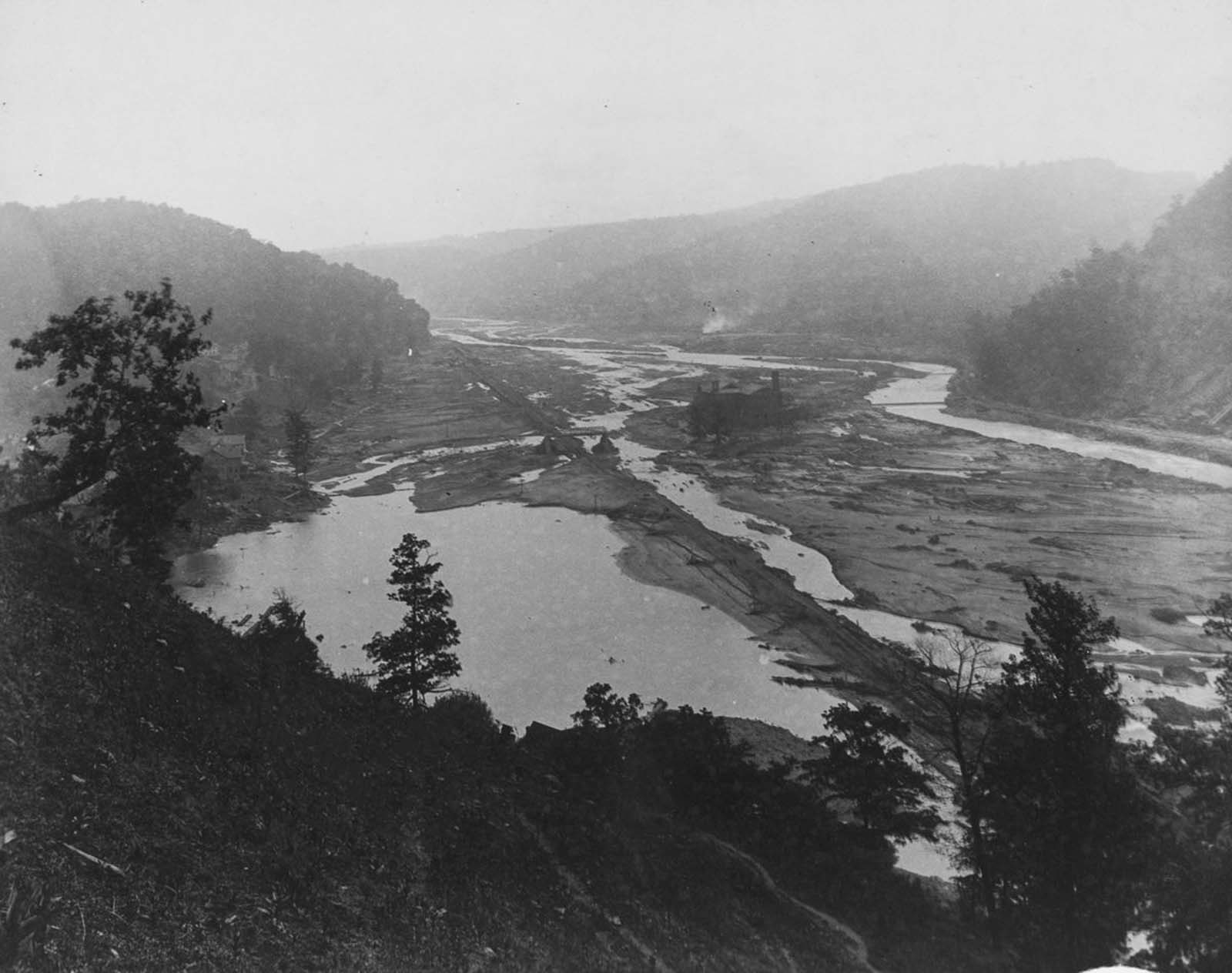
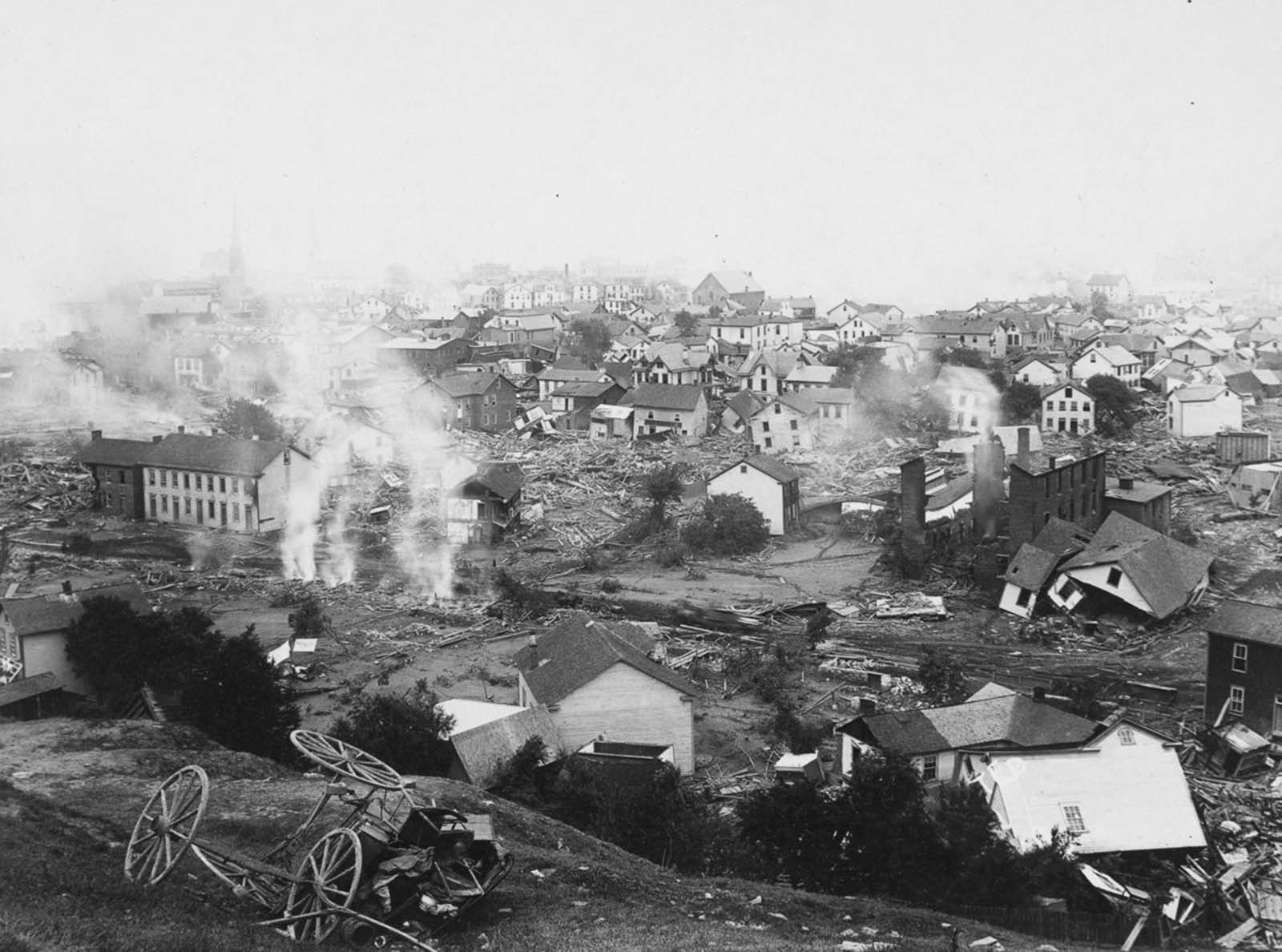
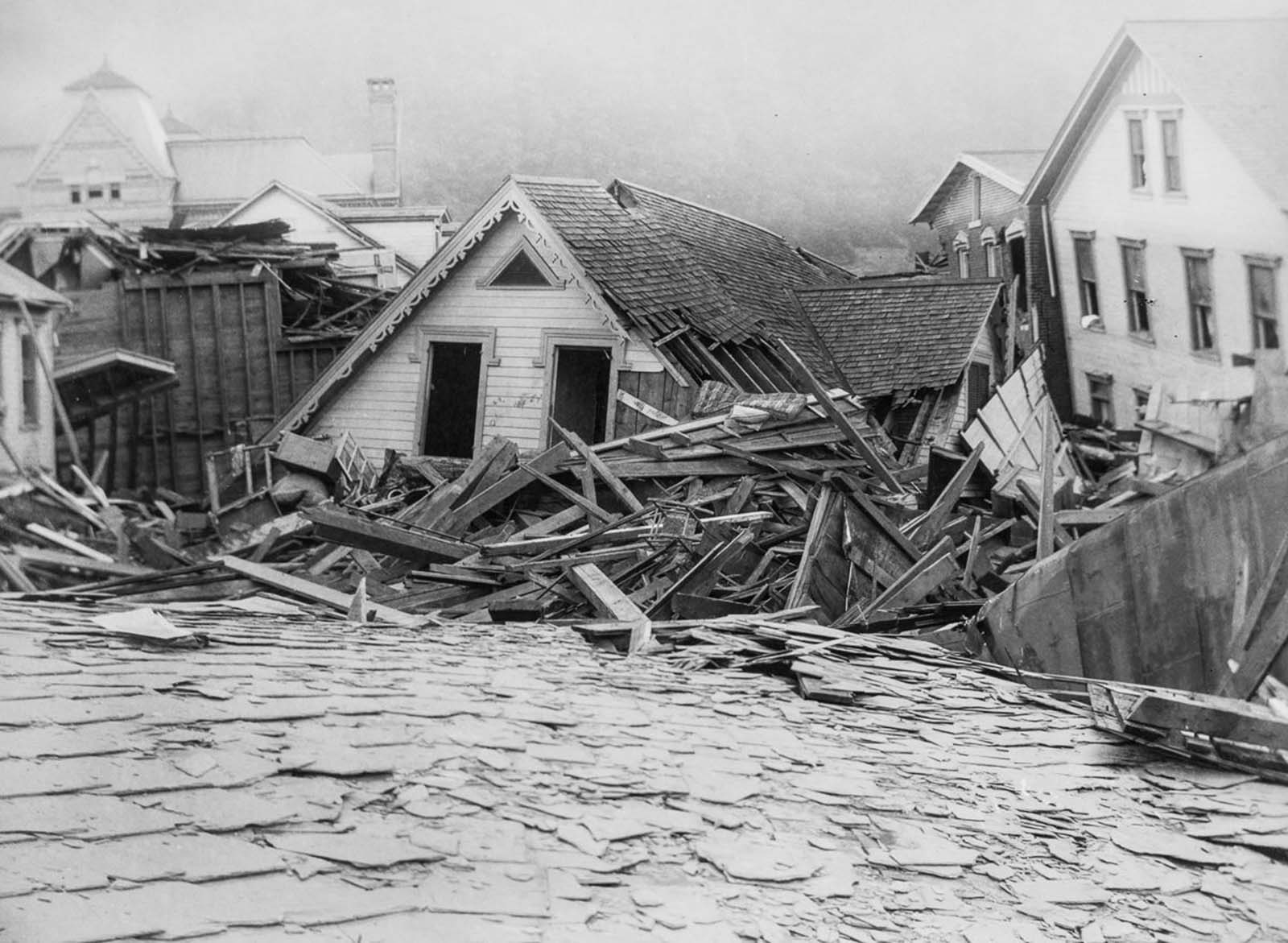
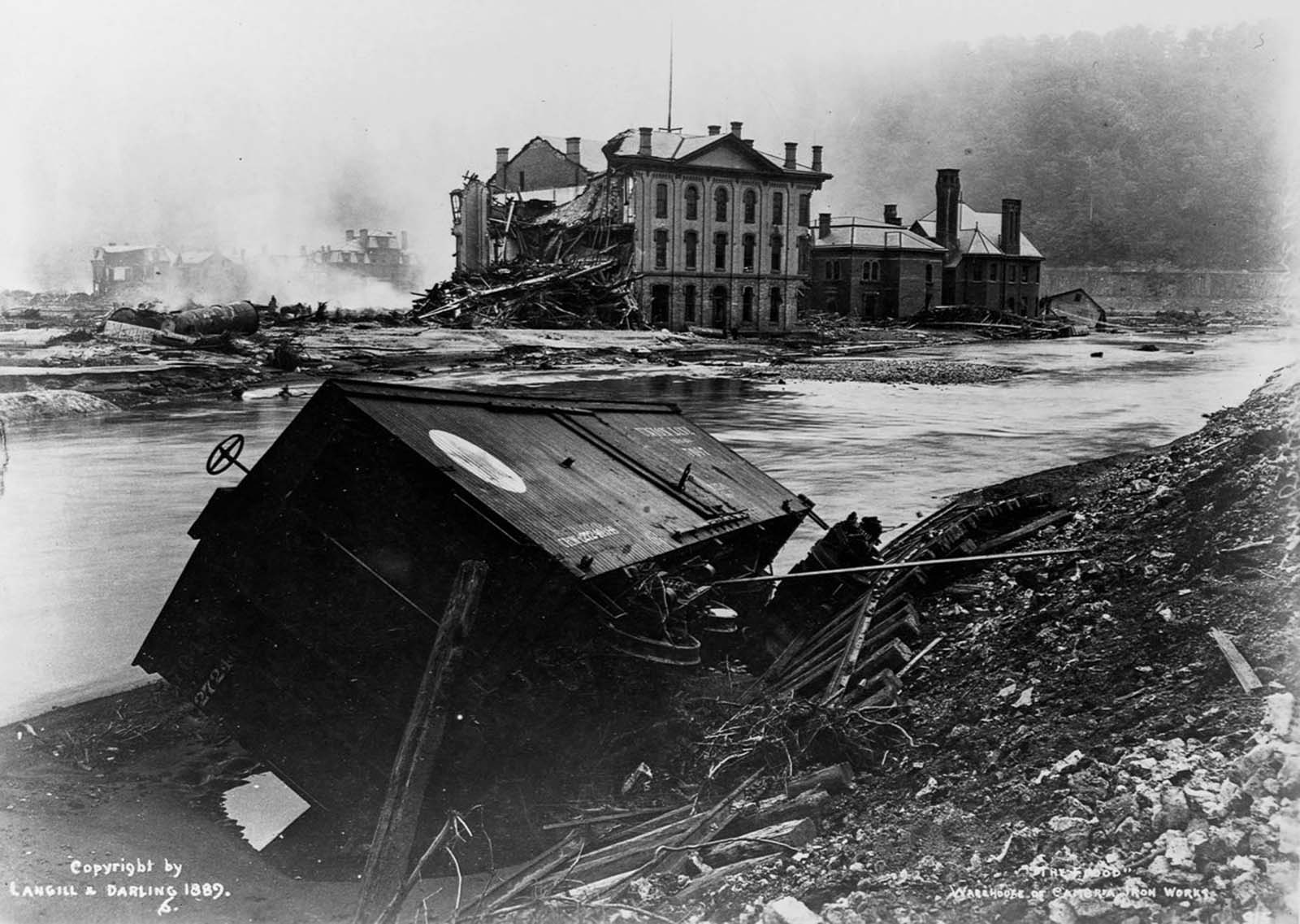
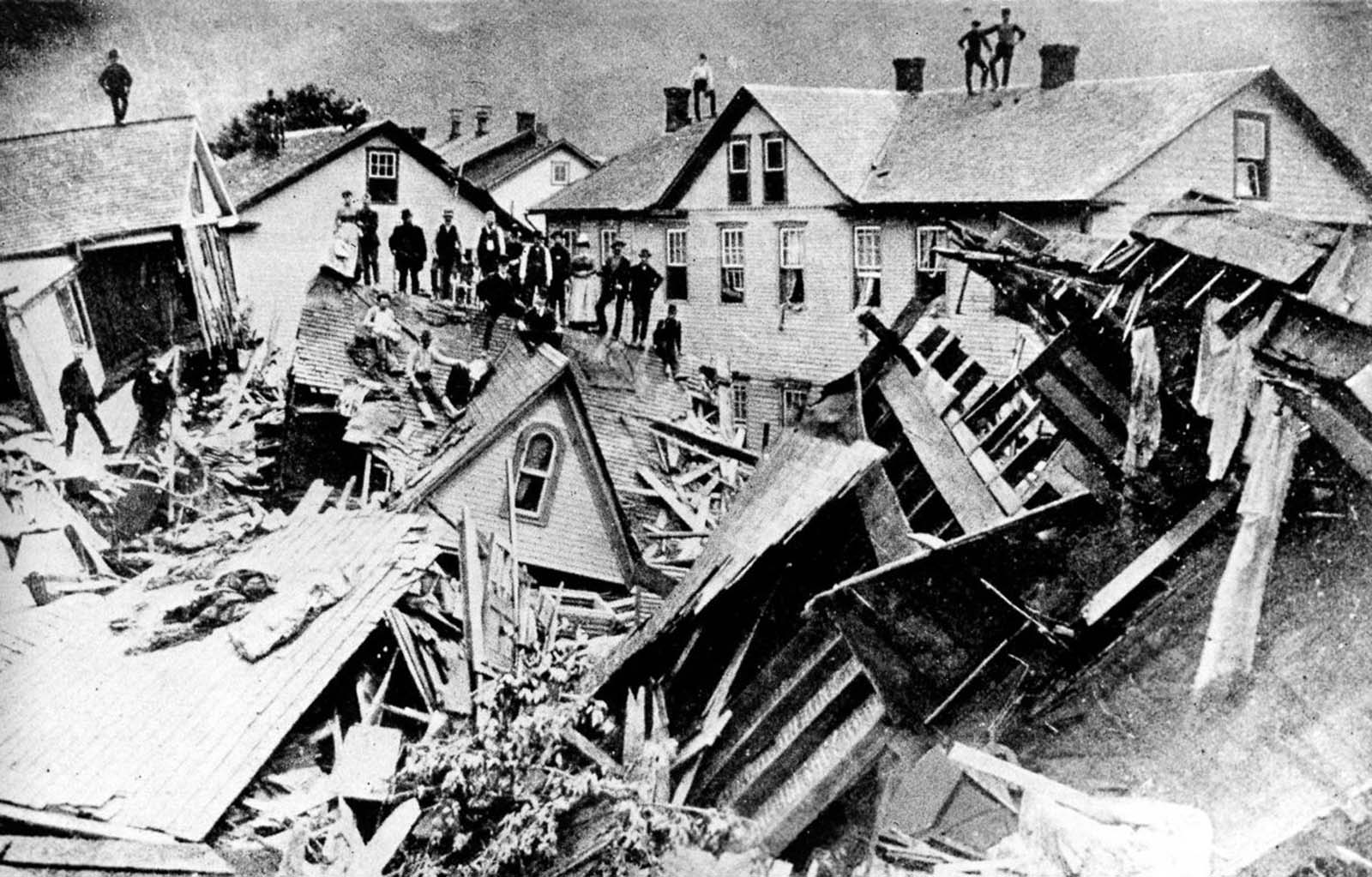
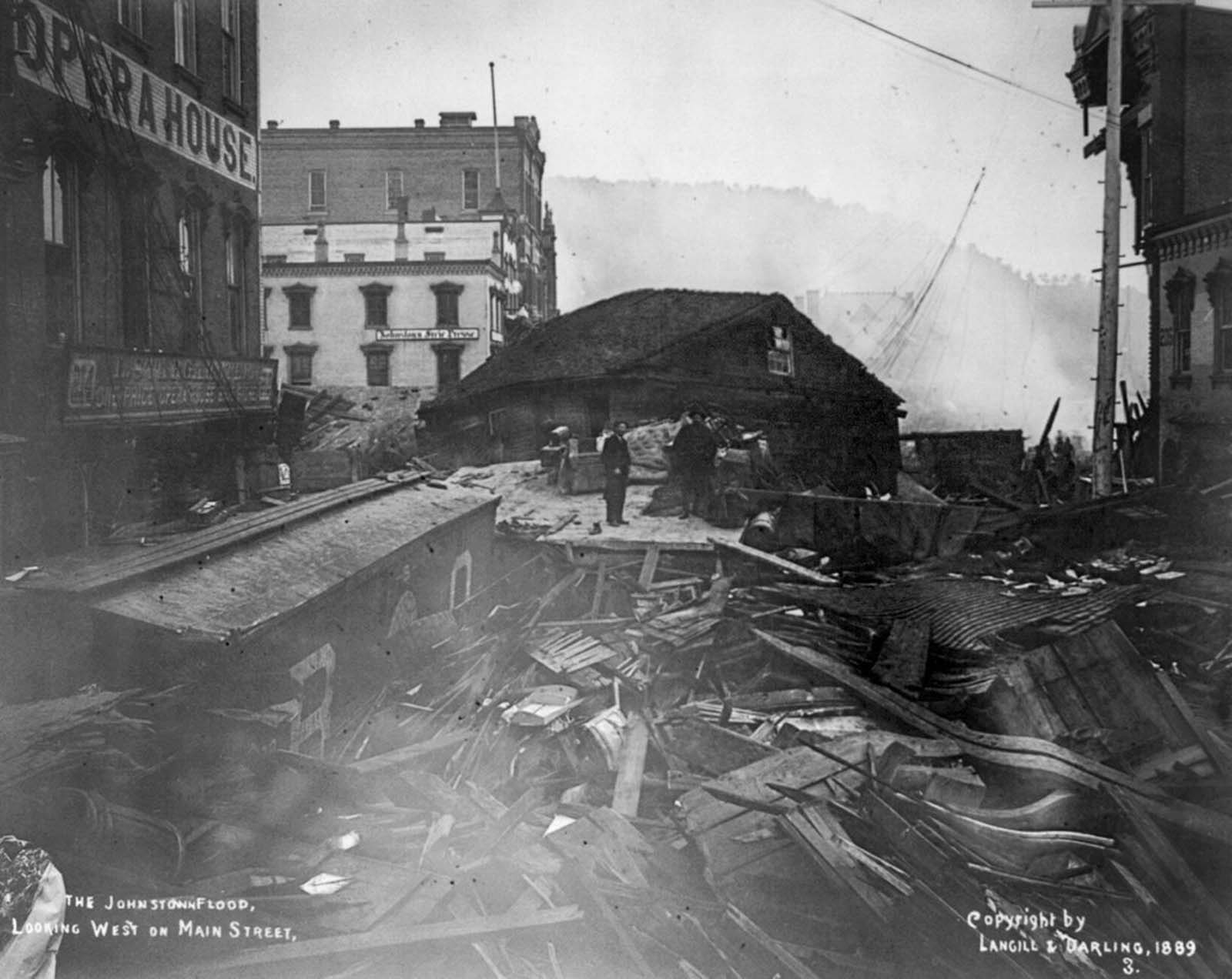
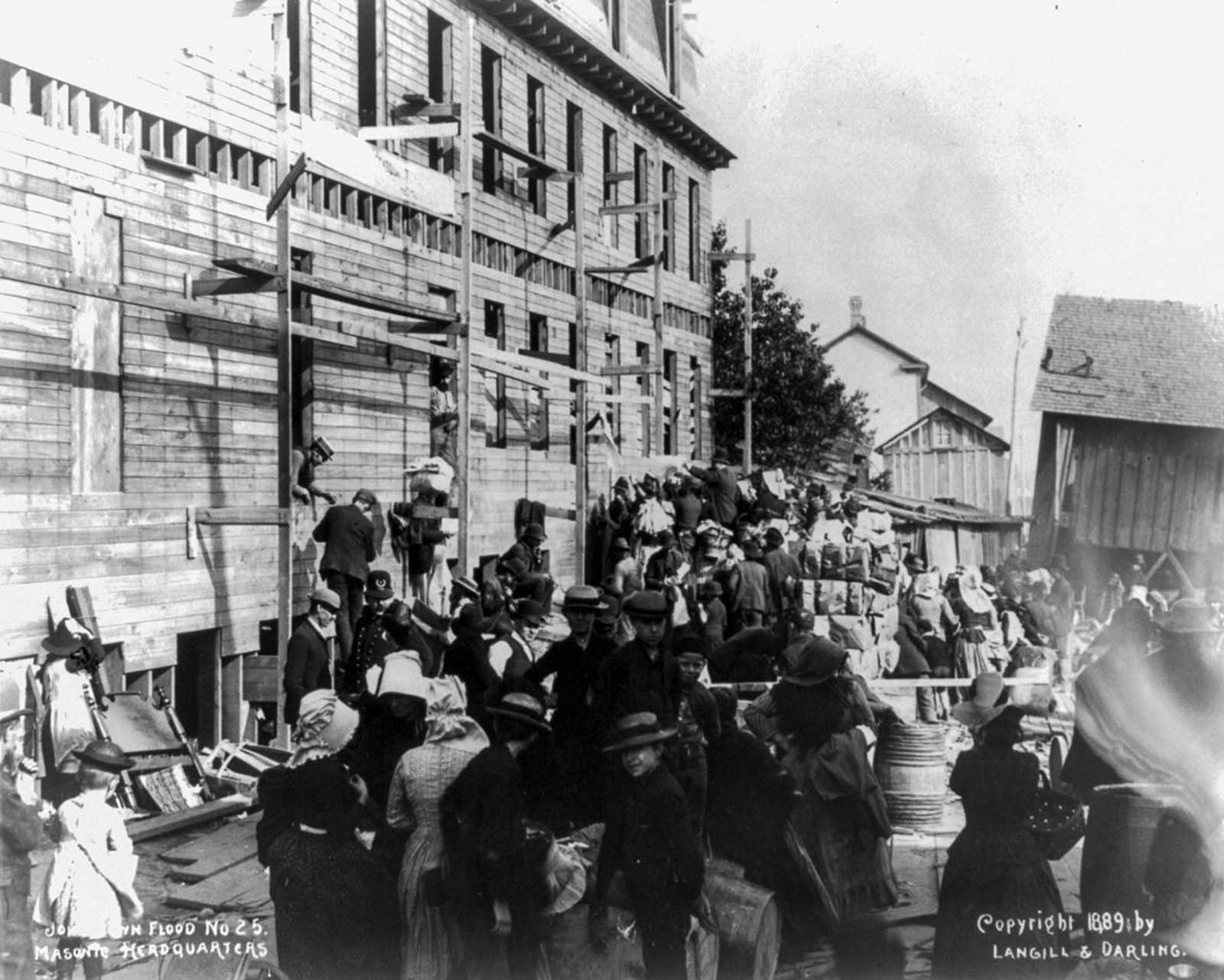
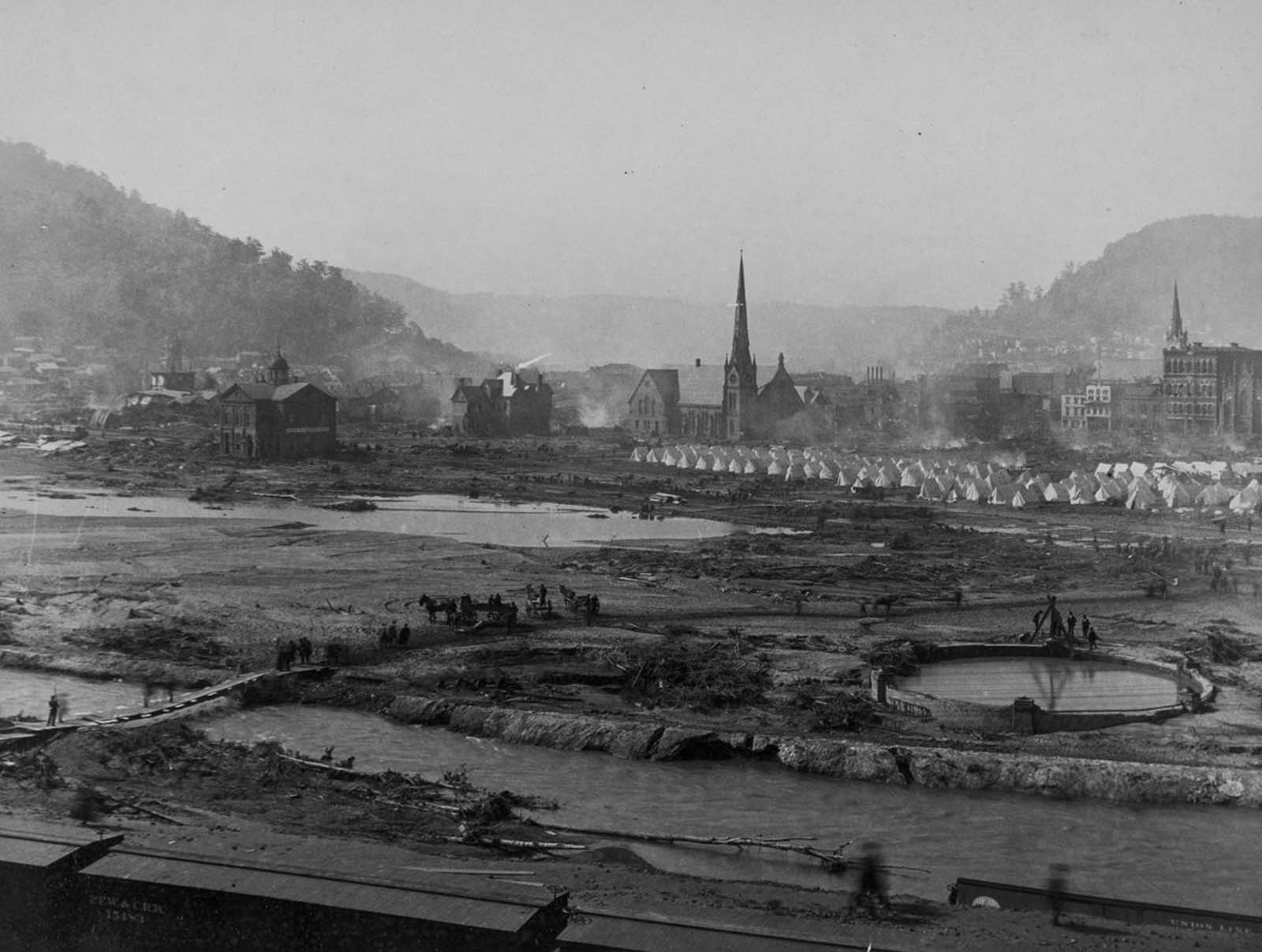
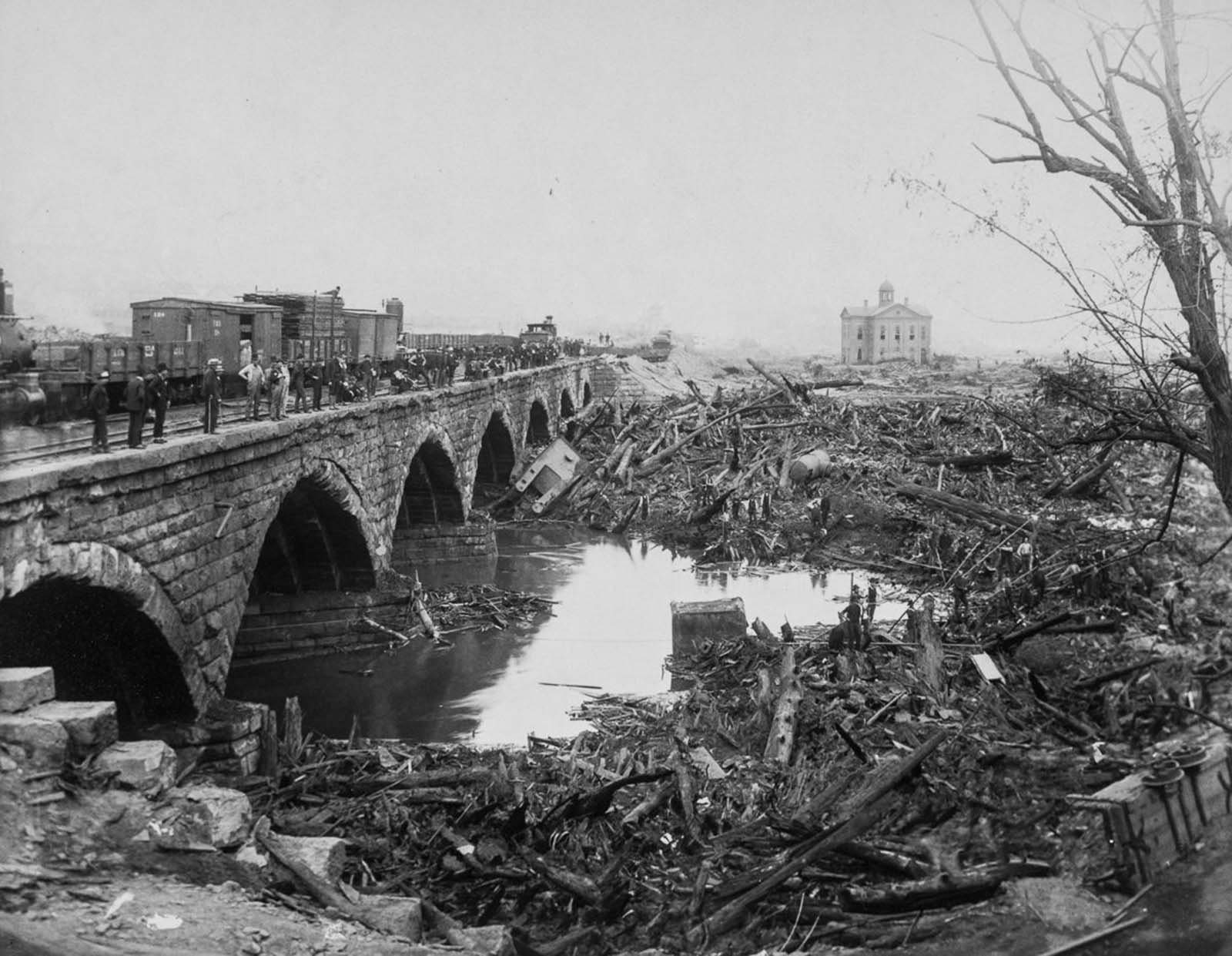
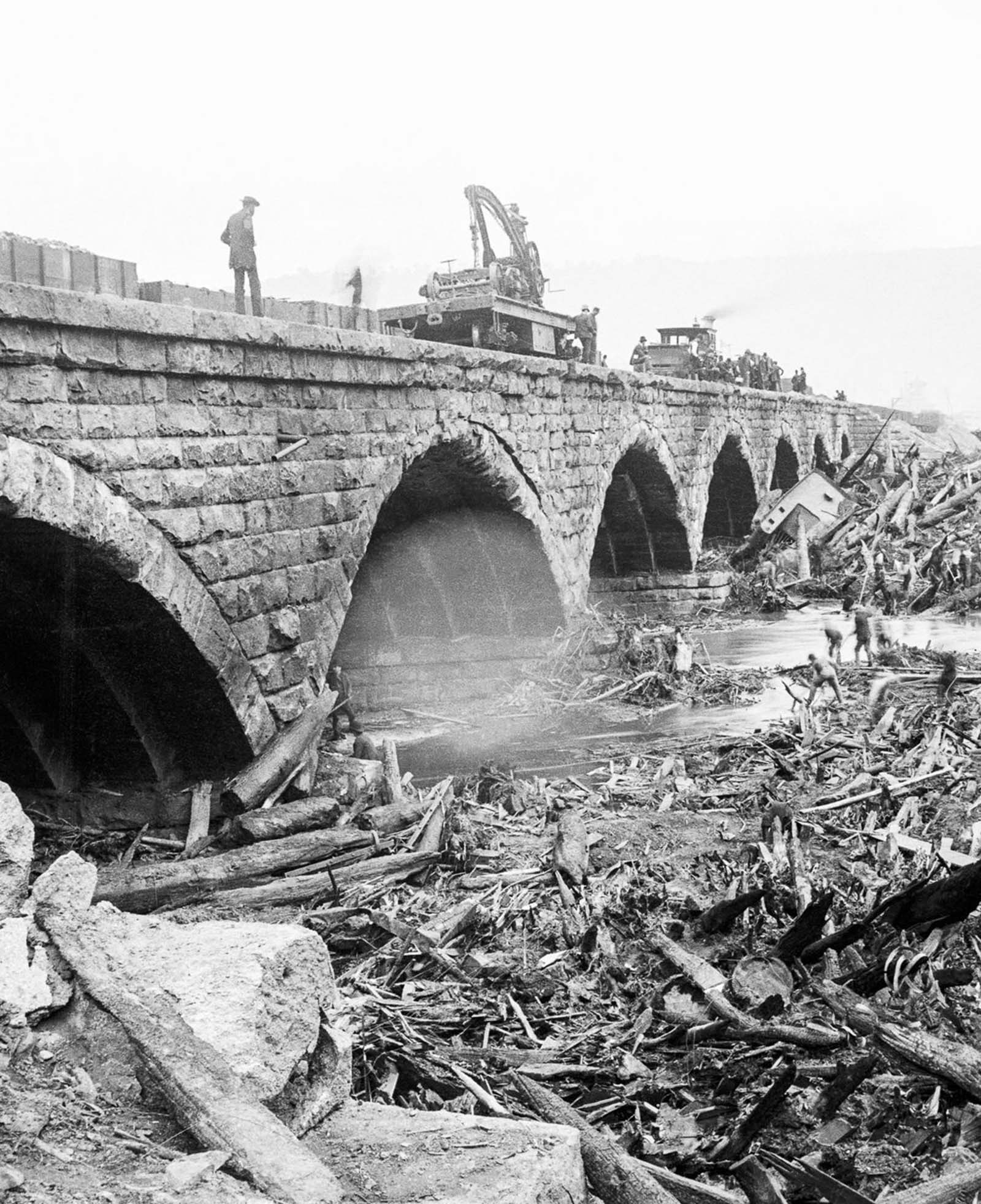
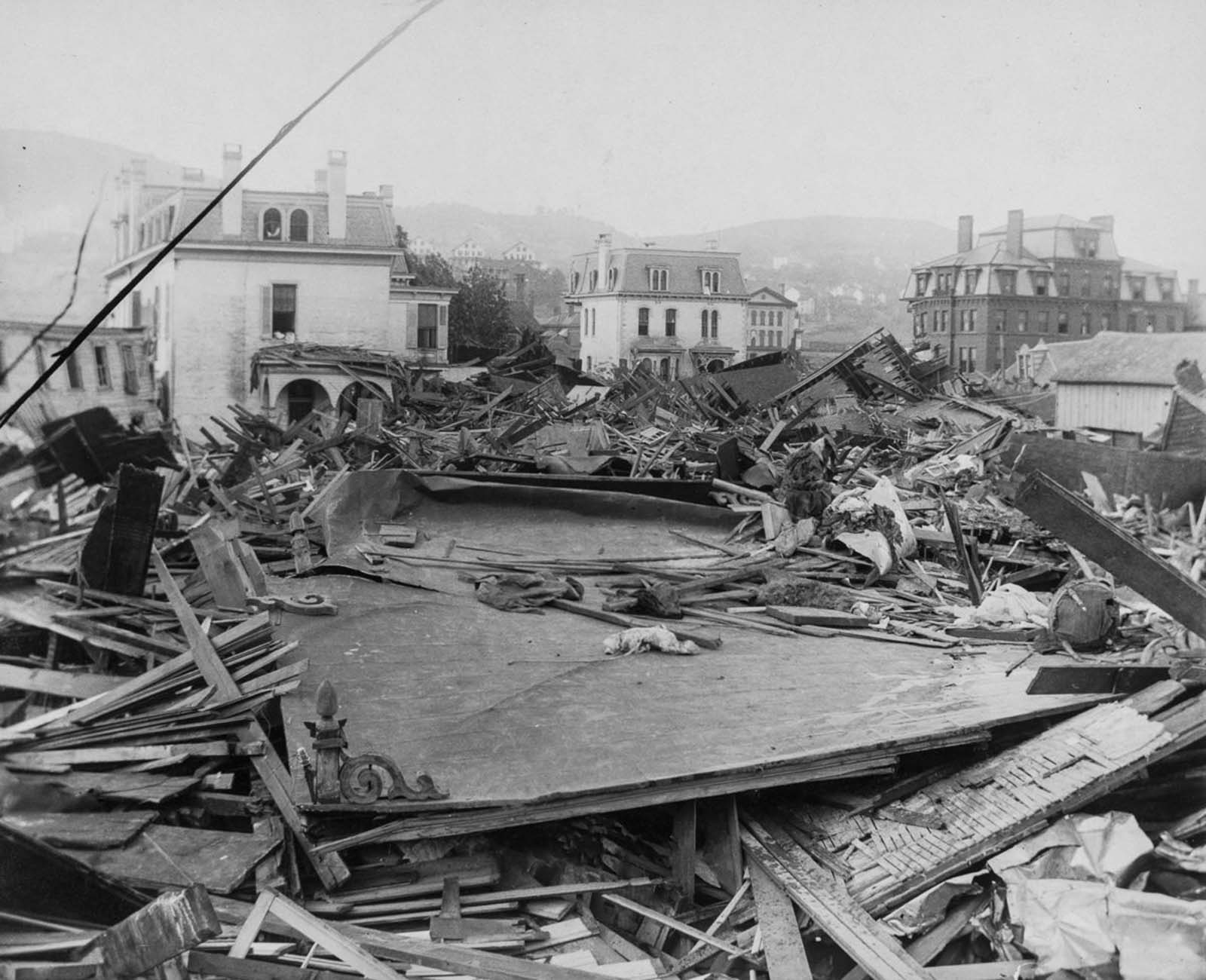
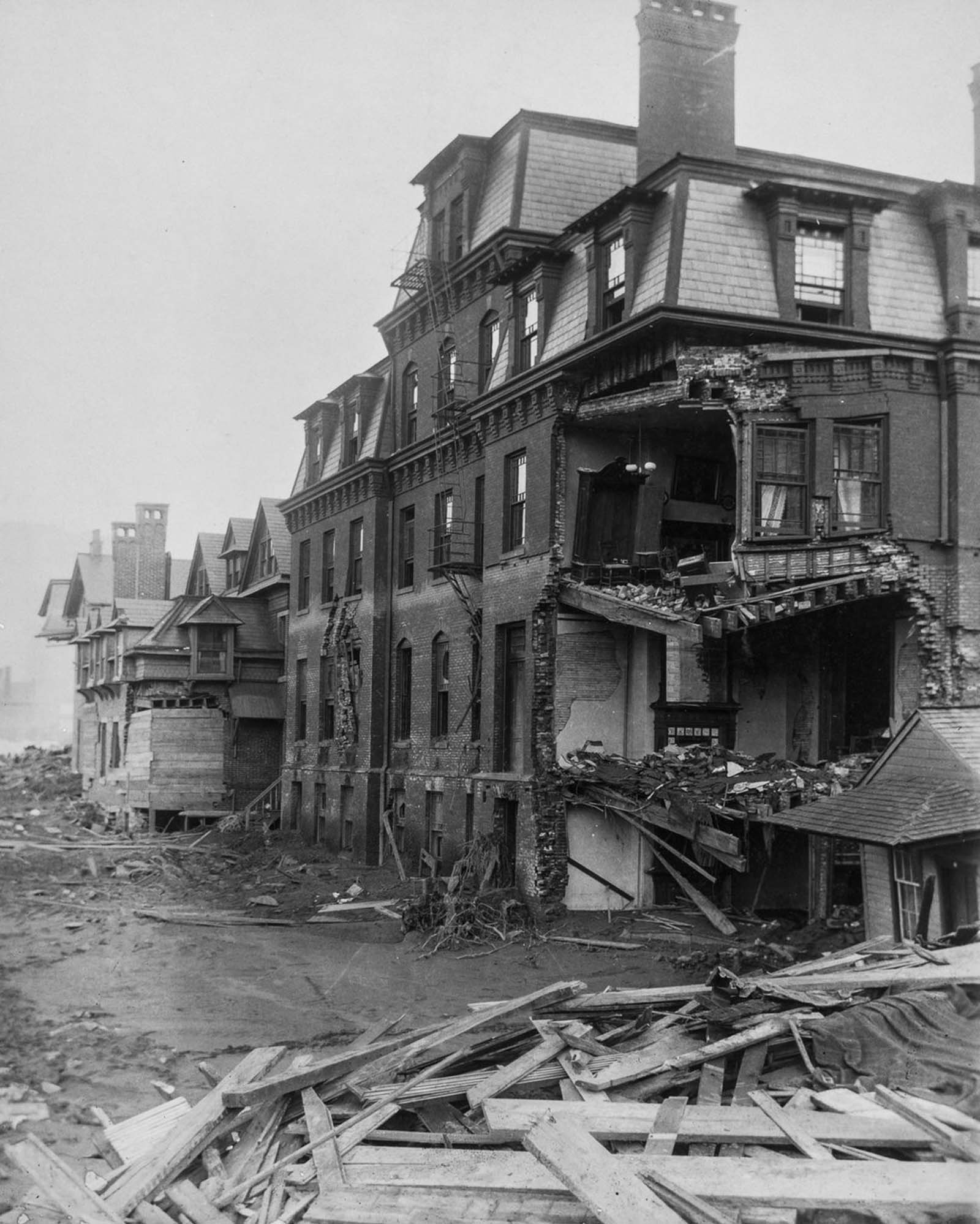
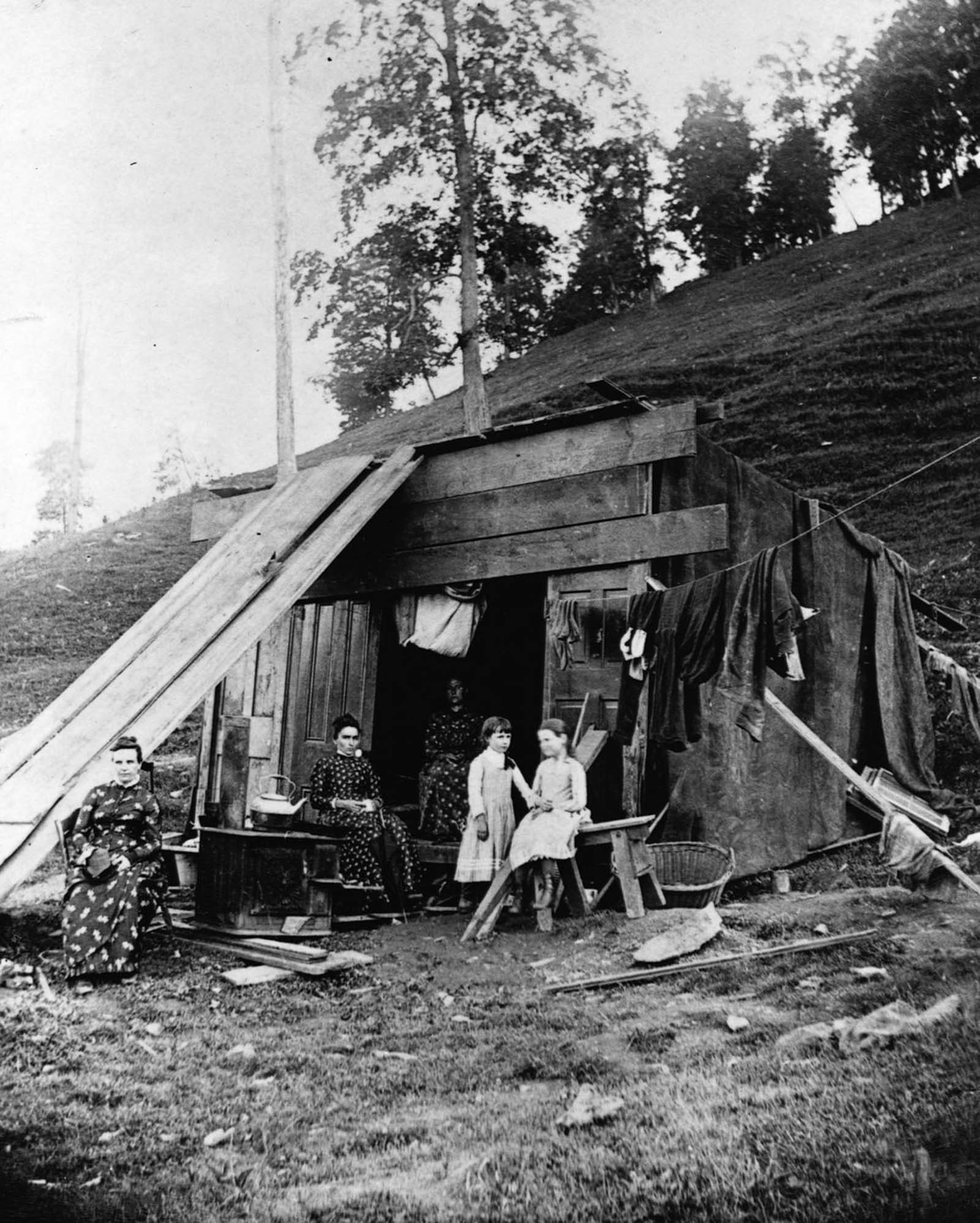
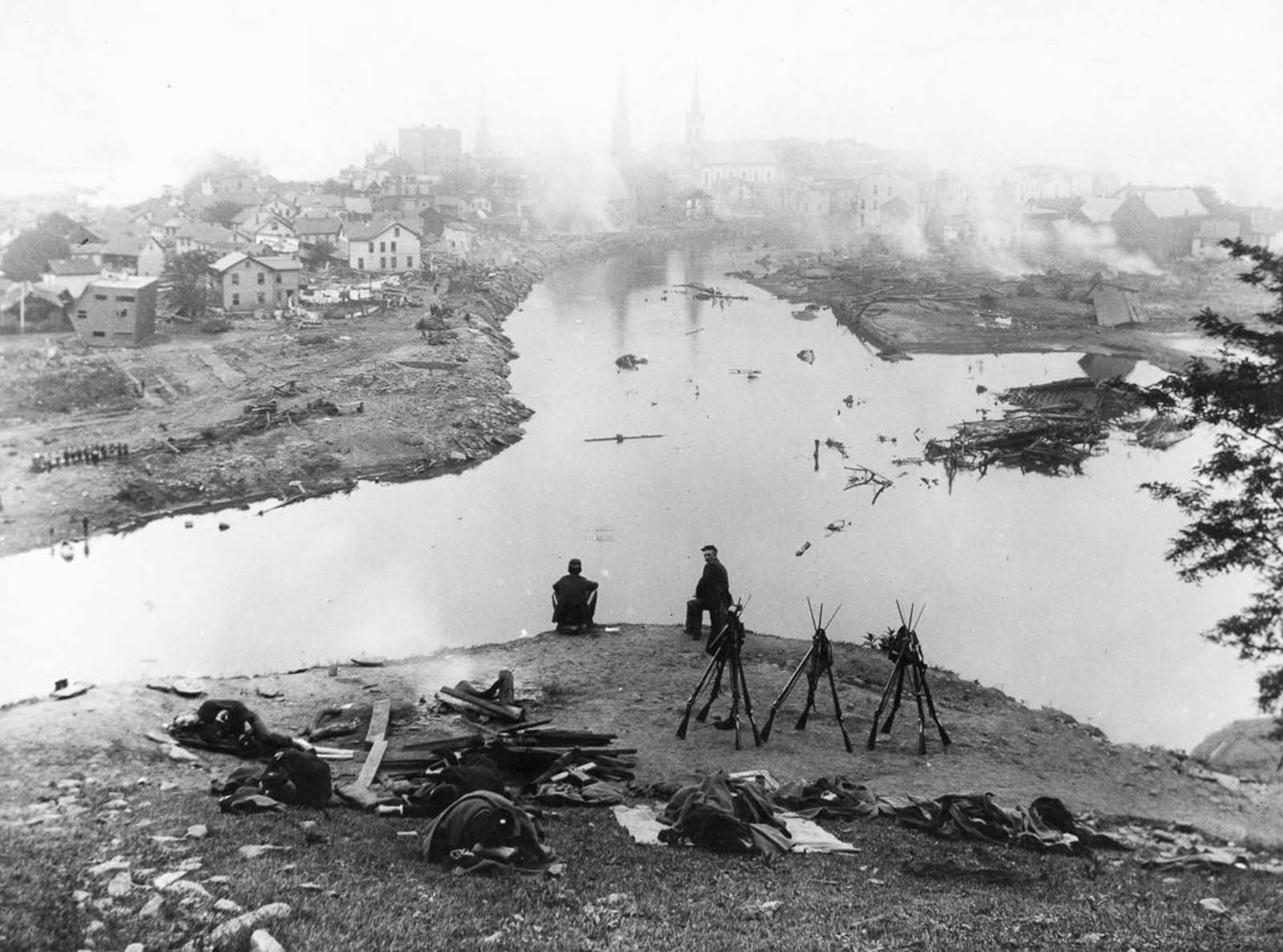
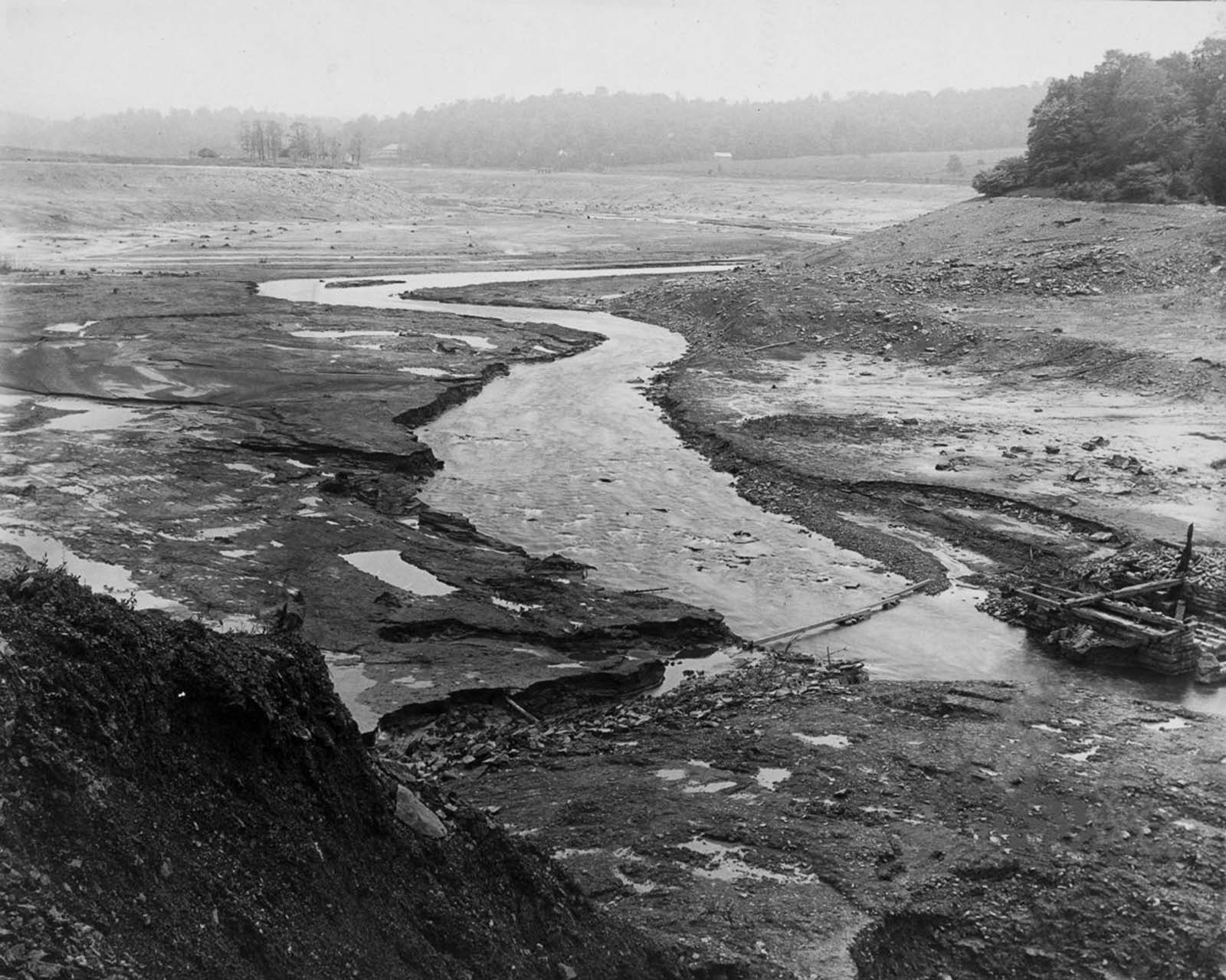
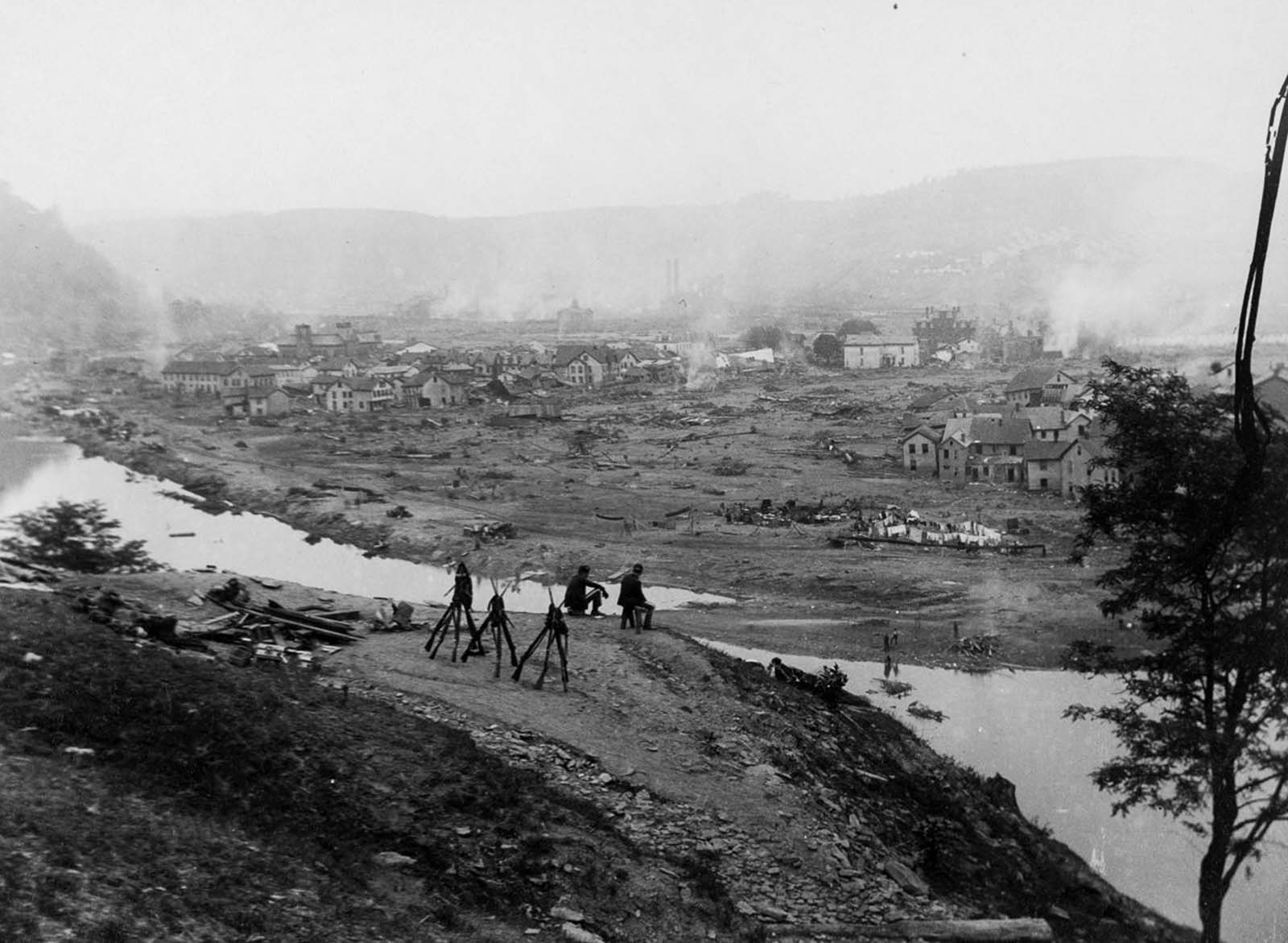
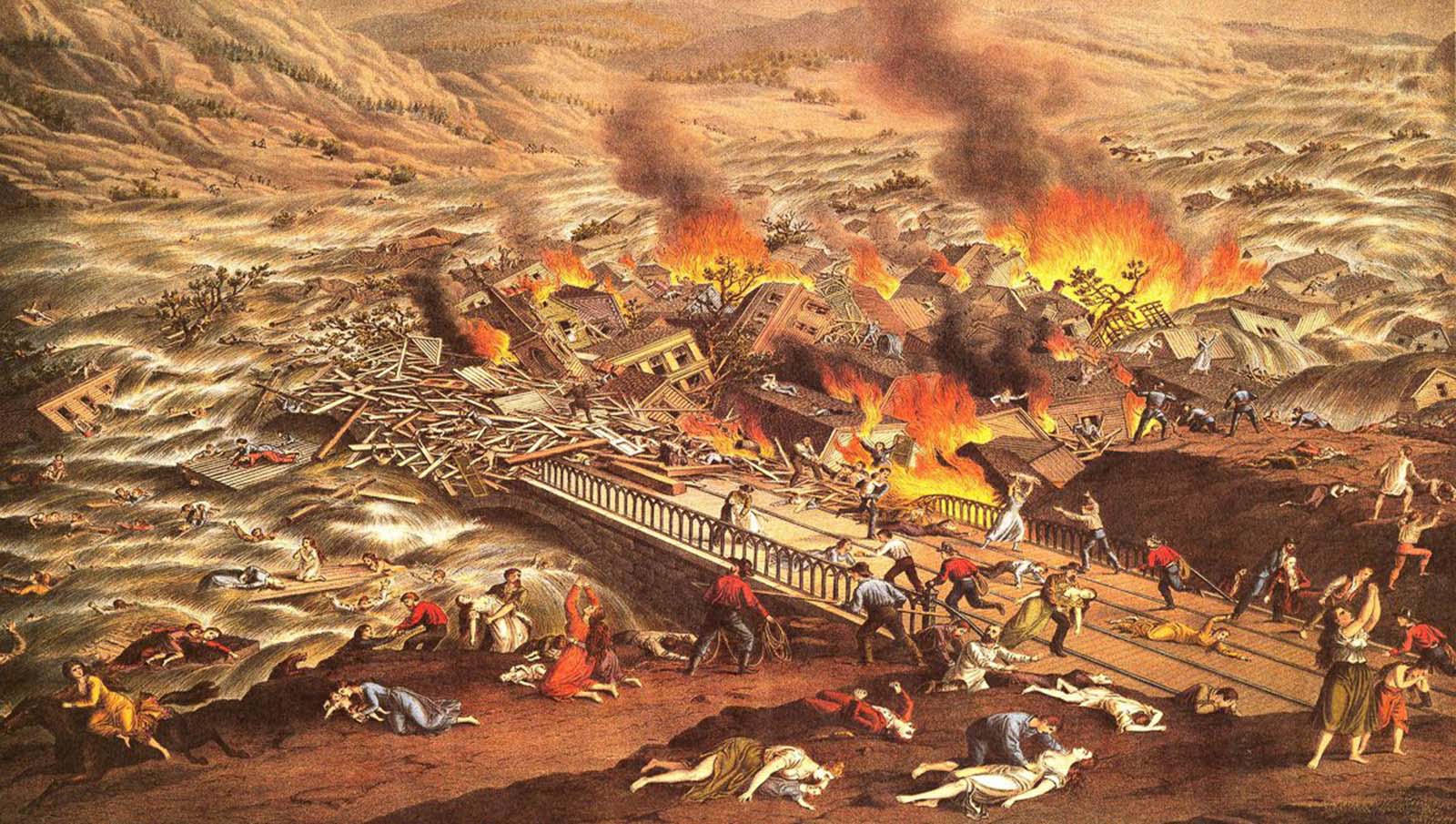
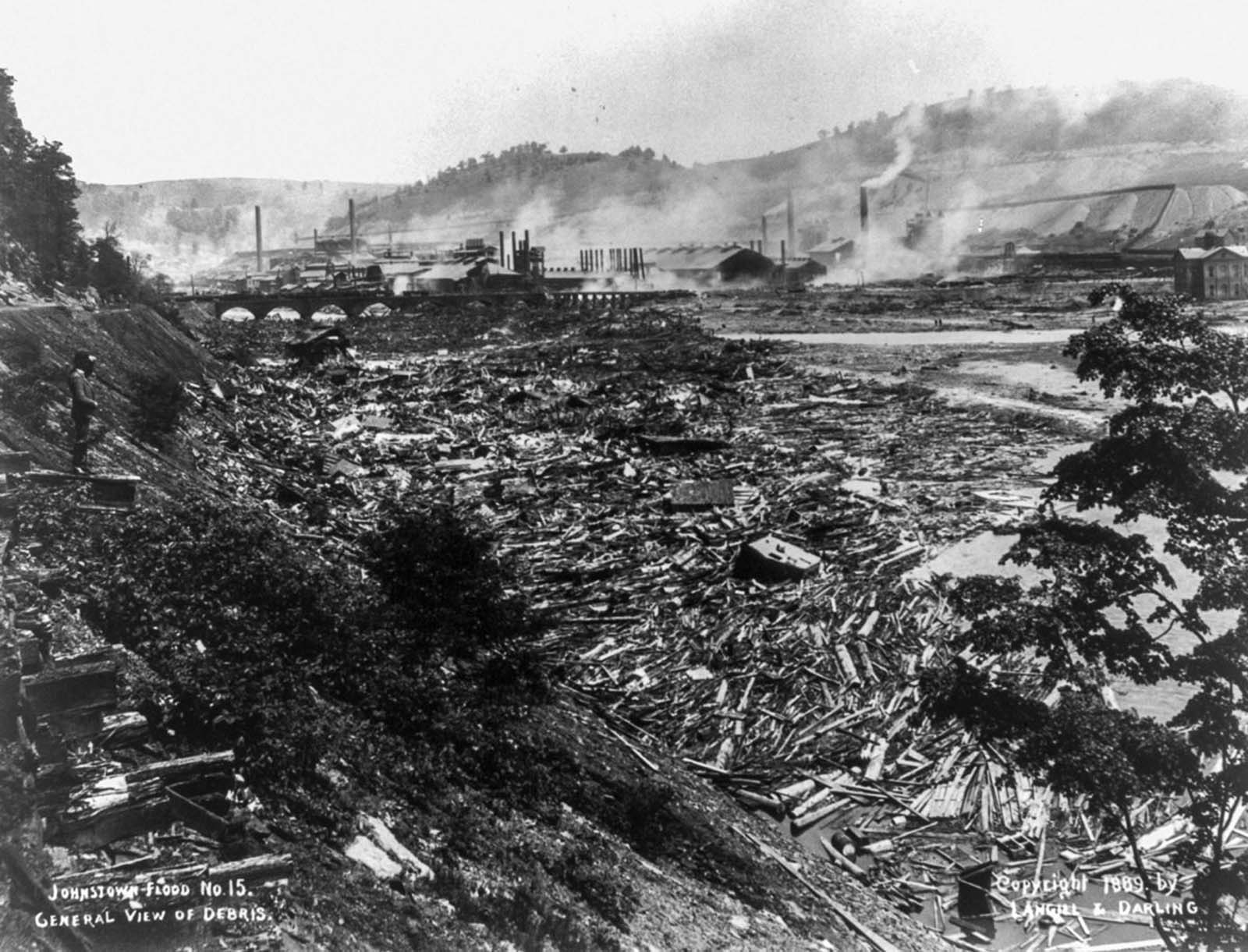
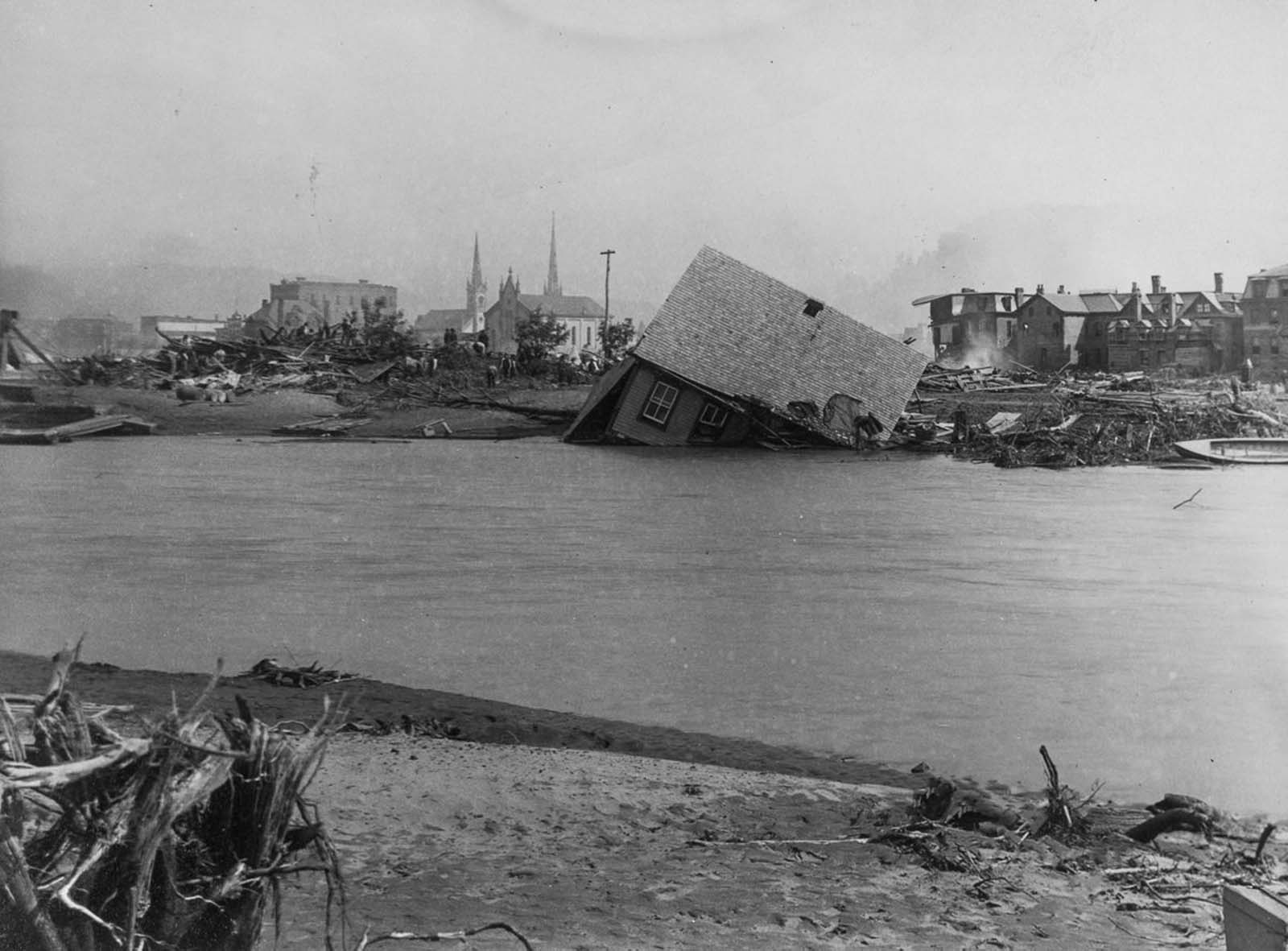
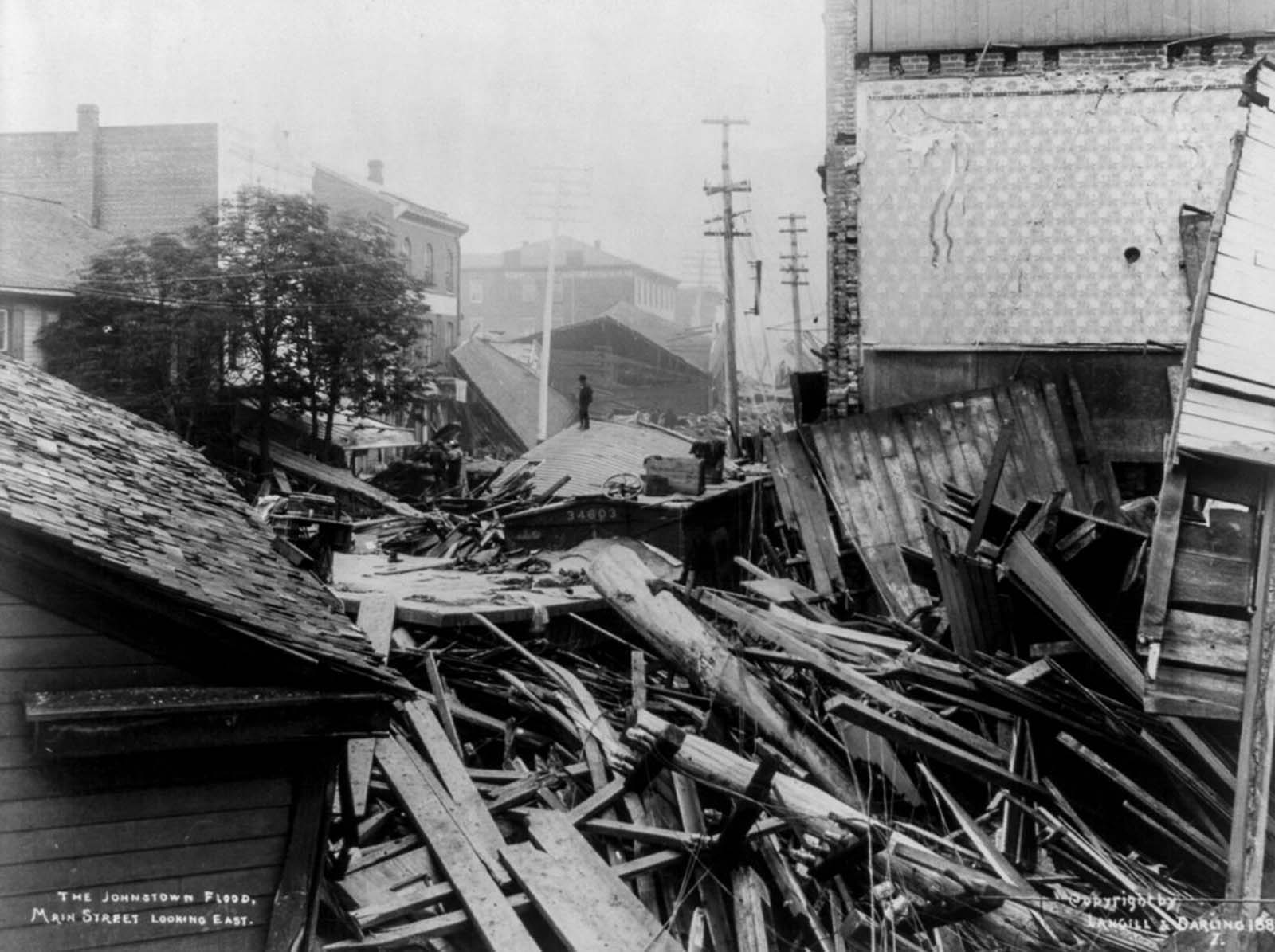
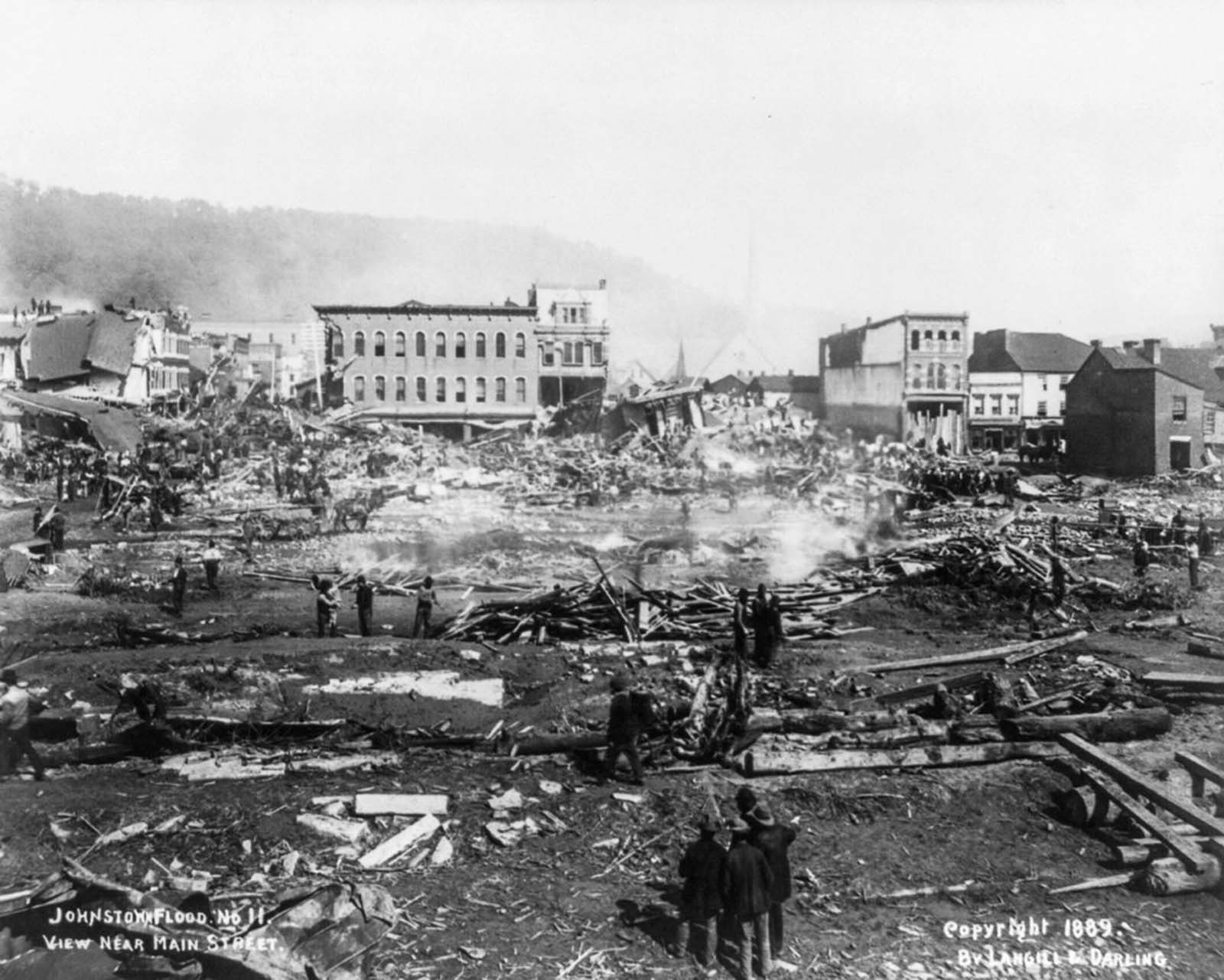
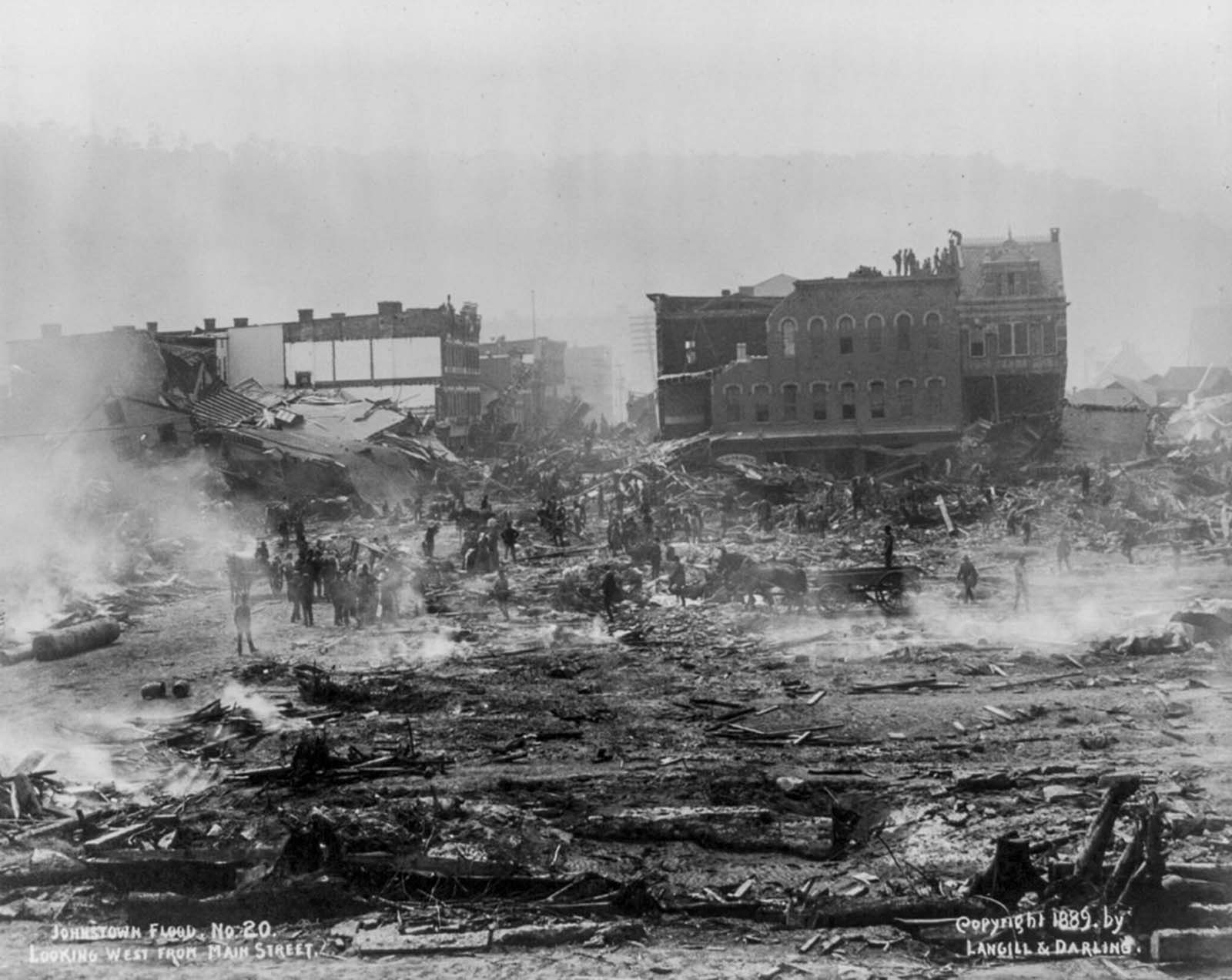
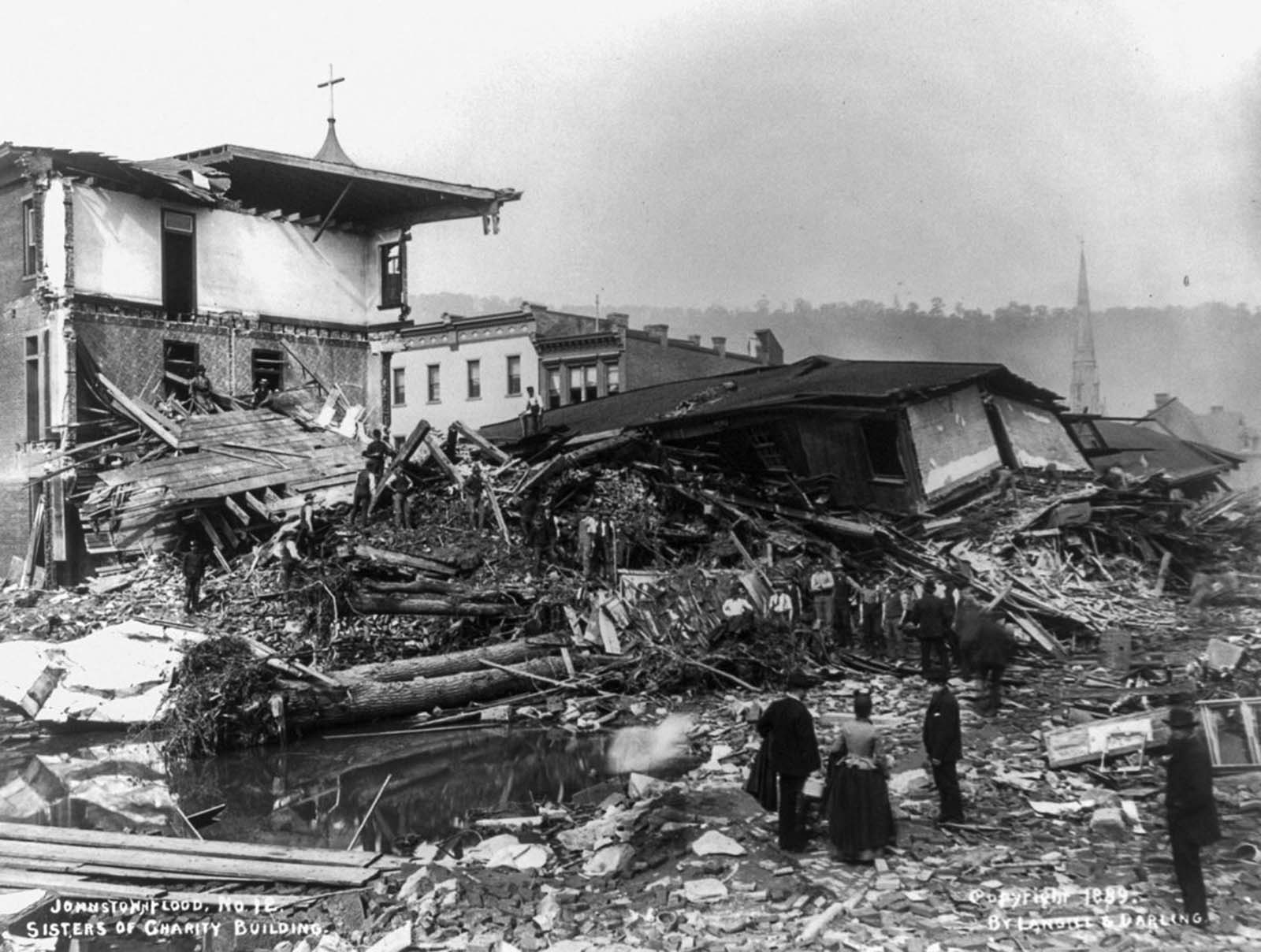
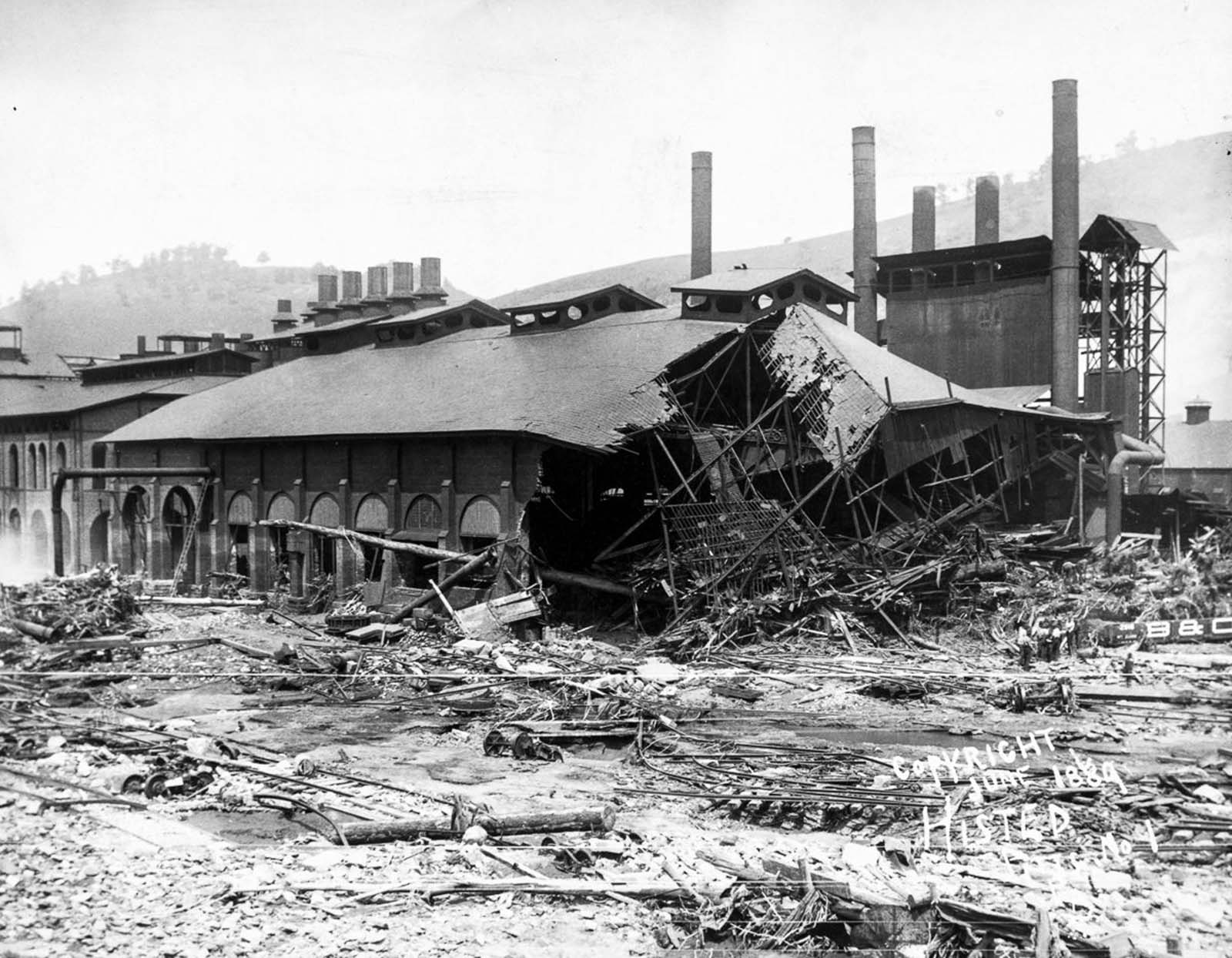
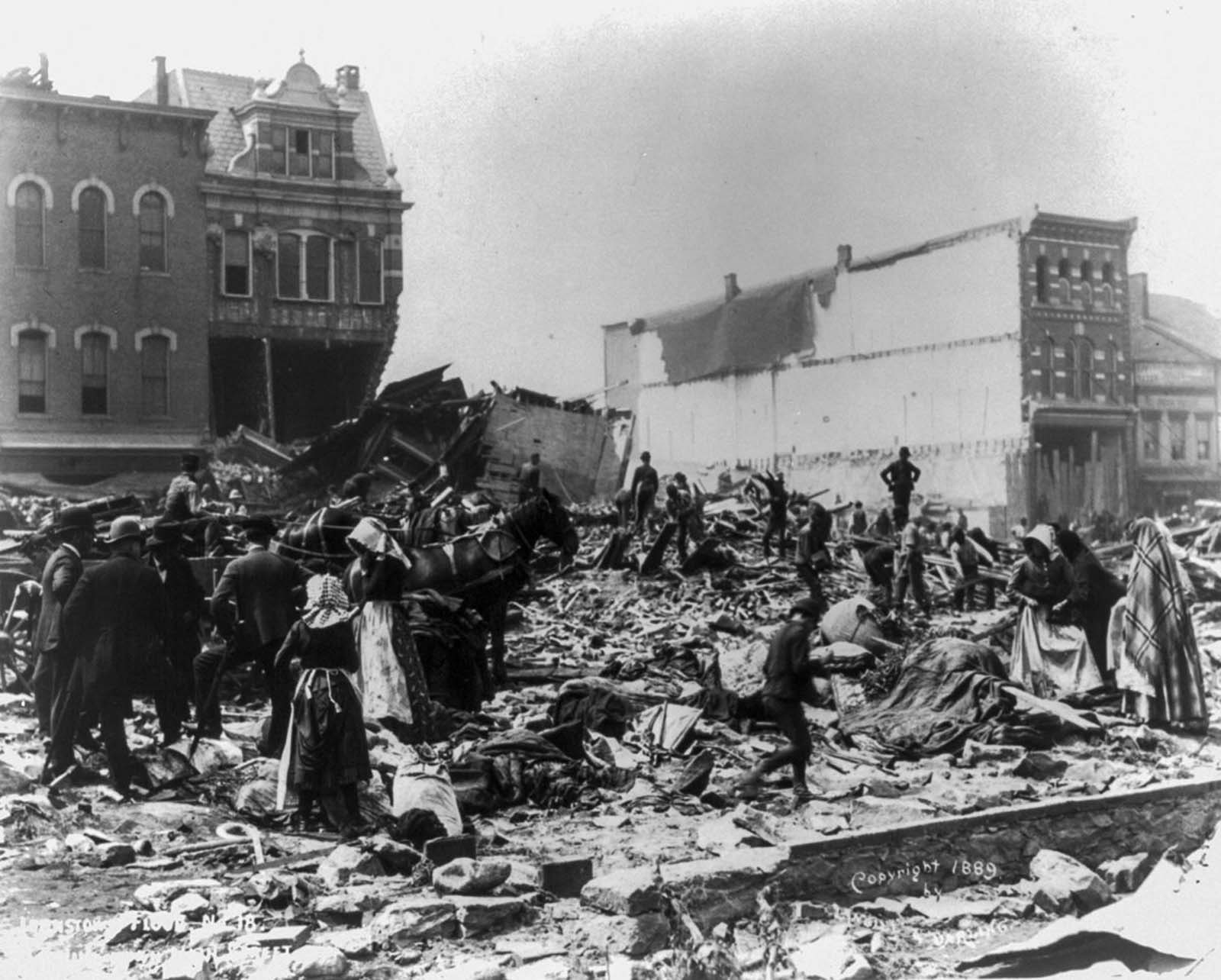
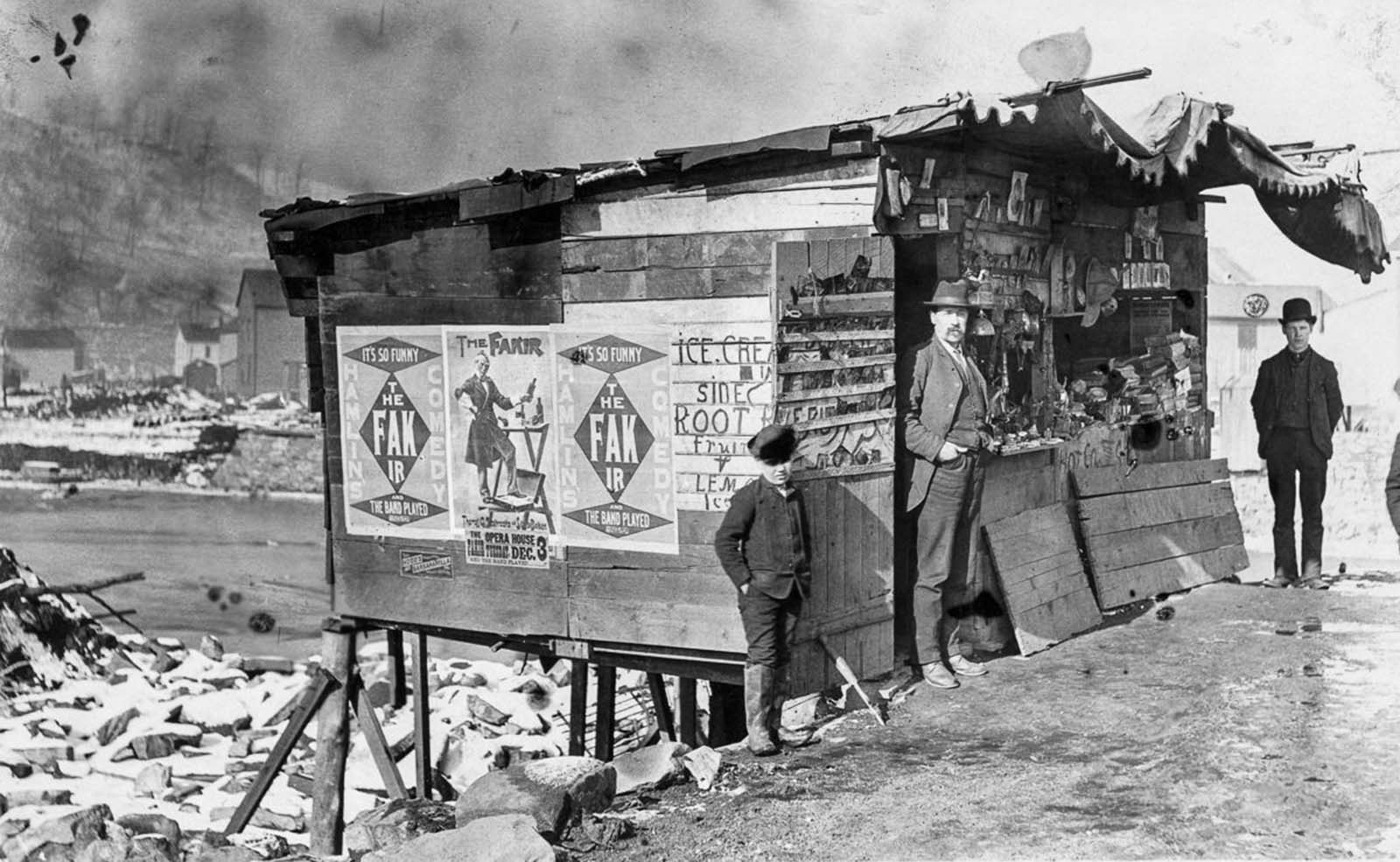

Residents of Pennsylvania are still paying for it through a tax on alcohol.
There is nothing as permanent as a temporary government program
People still wonder why so many vote against temporary taxes to help relieve or open museums or sports stadiums in their towns.